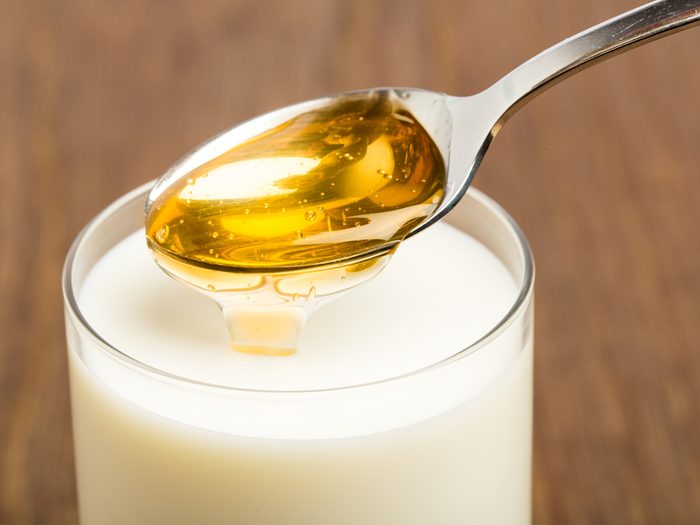
Sip warm milk and honey
Forget the glass of wine—winding down the day with a warm mug of milk and honey is one of the better natural sleep remedies. The secret is in the combination of tryptophan, an amino acid known to induce sleep, and carbohydrates, according to the National Sleep Foundation. Tryptophan increases the amount of serotonin, a hormone that works as a natural sedative, in the brain. Carbs, like honey, help transmit that hormone to your brain faster. If you’re hungry for a snack, a turkey sandwich will deliver that power-combo of tryptophan and carbohydrates; or try a banana with milk to get some vitamin B6, which helps convert tryptophan to serotonin.

Practice cognitive behavioural therapy
Cognitive behavioural therapy (CBT) usually focuses on discovering and changing the thoughts or feelings that trigger depression and stress but it can be a natural insomnia cure, too. This type of CBT is usually called CBT for Insomnia (CBT-i). Research has found that CBT can retrain your body and mind for faster, deeper sleep, according to a study published in the journal SLEEP. In an Annals of Internal Medicine meta-analysis, CBT-i proved effective in adults with chronic insomnia.
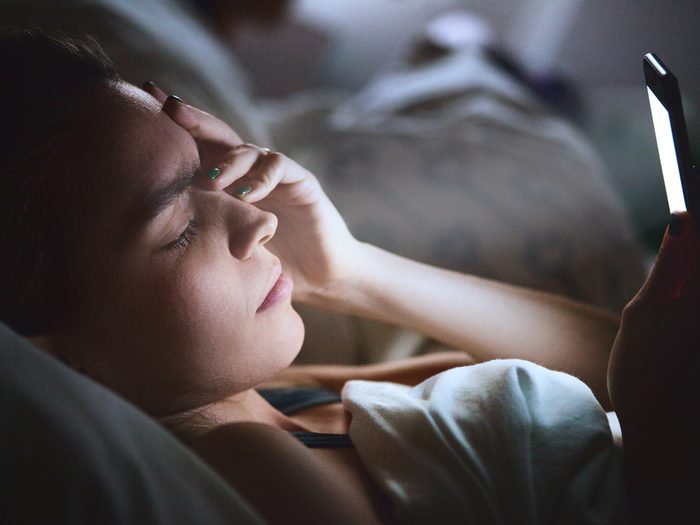
Turn off artificial lights—including screens
For those with insomnia, a calm, relaxing sleep environment is imperative for uninterrupted slumber. Perhaps one of the most effective natural sleep remedies is removing electronics that having glowing screens, such as cell phones, tablets, and laptops, according to a study published in Molecular Vision. The blue light disrupts your circadian rhythms, making it difficult to fall asleep, they found. Even if you can fall asleep the pings from your cell phone or email can disrupt your sleep cycle. Go even further by making sure your shades are tightly drawn against any outdoor lights. For maximum comfort, the National Sleep Foundation recommends a room temperature between 60 and 67 degrees.
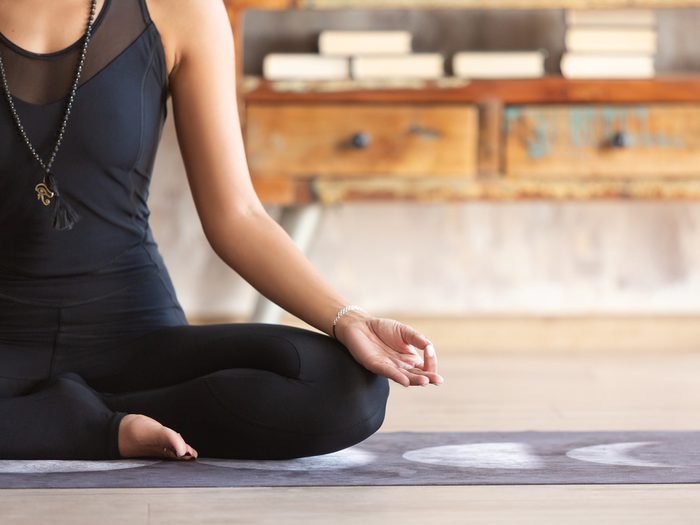
Manage stress with exercise
If anxiety is keeping you up at night, try these natural sleep remedies: yoga, meditating, or writing in a journal before bed. Tai chi is a proven sleep-inducing (and stress-reducing!) exercise. A tai chi routine right before bed helped people fall asleep 18 minutes faster and get 48 minutes more nightly sleep, according to a study published in the journal of the American Geriatrics Society. In addition to adopting sleep-inducing habits, learn how your diet could be wrecking your sleep.
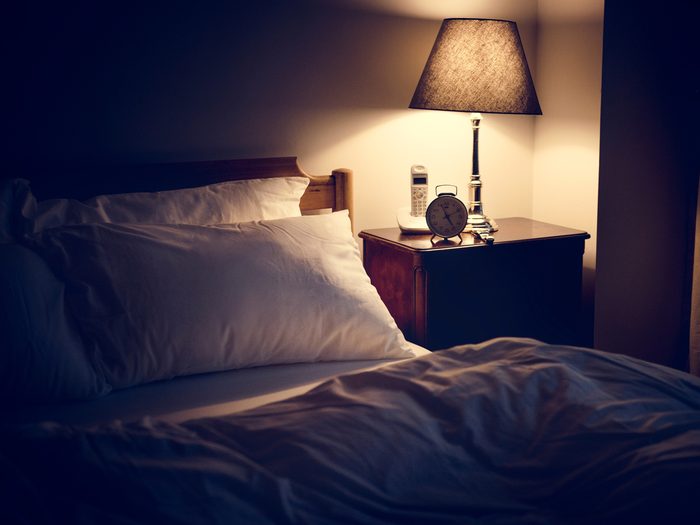
Adopt a bedtime ritual
If you always seem to get a poor night’s sleep, it may be because you’re not following a bedtime ritual, according to a British study that found children sleep better when they have a consistent bedtime routine. And this is true for adults as well, the National Sleep Foundation says. So make it a priority to go to bed and wake up at the same time every day. Introducing nightly habits like reading in bed or listening to music will also help to quiet your brain for the day and prepare it for sleep. Try setting your phone or iPod on a timer and nod off to your favorite soothing melodies. For more ideas, try one of these soothing yoga poses to help you wind down before bed.
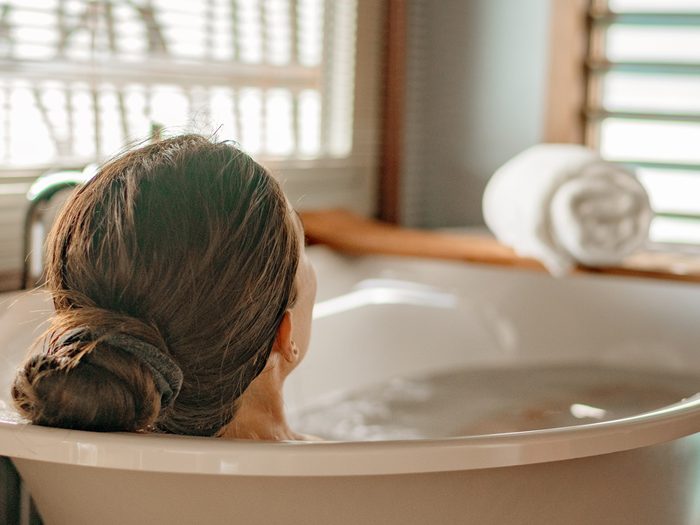
Take a hot bath
Turns out, you’re never too old for a bubble bath, especially when it comes to natural sleep aids. Women who took a hot bath before bed fell asleep faster and reported a higher quality of sleep than women who simply went to bed, according to a study published in the Journal of Physiological Anthropology. Don’t have time for a full soak? The researchers found that simply doing a warm foot bath before bed had similar sleep-inducing powers.
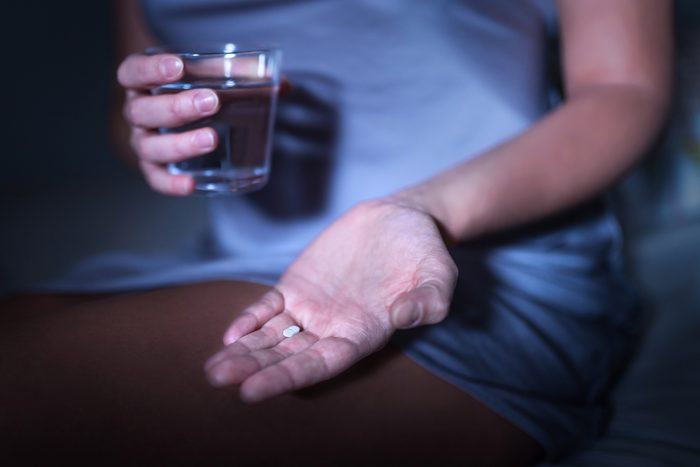
Try melatonin
Melatonin, a hormone produced in the brain, may also help you fall asleep faster when taken as a supplement, according to a study published in Sleep Medicine Reviews. The production of melatonin is triggered by the absence of light, allowing this natural sleep aid to regulate the body’s internal clock, ensuring we are tired at night and mentally and physically alert during the day. Researchers found that melatonin improved sleep quality and reduced nighttime disturbances. Supplements can be found in health food stores and pharmacies, but read up on the things you need to know before taking melatonin for sleep and talk to your doctor about whether melatonin is a suitable natural insomnia cure for you.
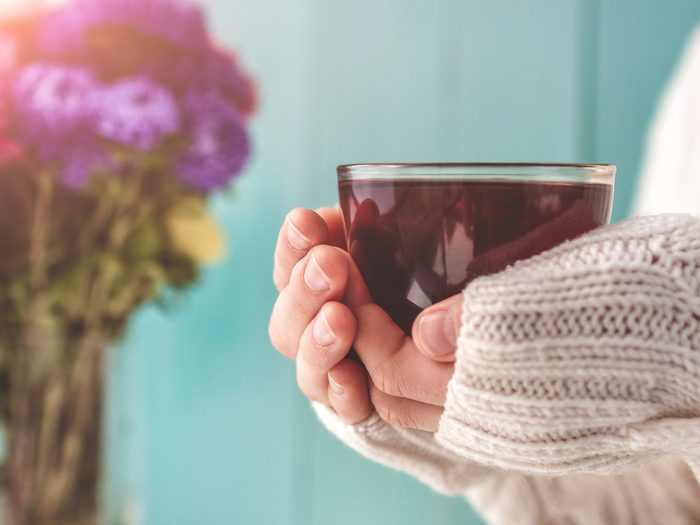
Drink herbal tea
Participants reported that one cup of passionflower tea nightly improved sleep quality in a small study from Australia’s Monash University. Herbalists also recommend a cup of chamomile before bed; chamomile contains the flavonoid apigenin, which has a calming effect on the brain. Valerian tea, when brewed into tea or taken as a capsule, can reduce the time it takes to fall asleep and produce a deep, satisfying rest, according to a meta-analysis published in the American Journal of Medicine. Valerian also appeared to lengthen the amount of sleep, reduce nighttime awakenings, and lessen the effect of menopausal symptoms on sleep.
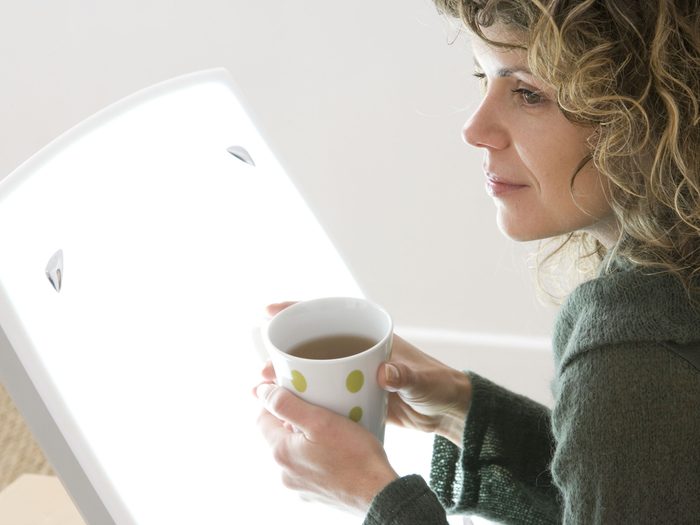
Book a light therapy session
Natural light is critical for our health and well-being. Bright light therapy, using a light box provided by your dermatologist or reputable light box manufacturers online, can reset your body clock by gradually shifting sleep patterns earlier or later, leading to better sleep, according to a study published in Sleep Medicine Reviews. Researchers found that daily use of light-therapy lamps helped insomniacs fall asleep faster and sleep longer. You can also try going outdoors around noon; it will retune your circadian rhythm even if you’re stuck inside for most of the day.

Check your medications
Many medications can interfere with sleep, including beta-blockers, thyroid medication, decongestants, medications containing caffeine, and certain antidepressants, according to the National Sleep Foundation. If you’re having trouble sleeping, talk to your doctor about changing dosages or medications.
Next, check out the newest sleep-inducing products to help you fall asleep easier.
